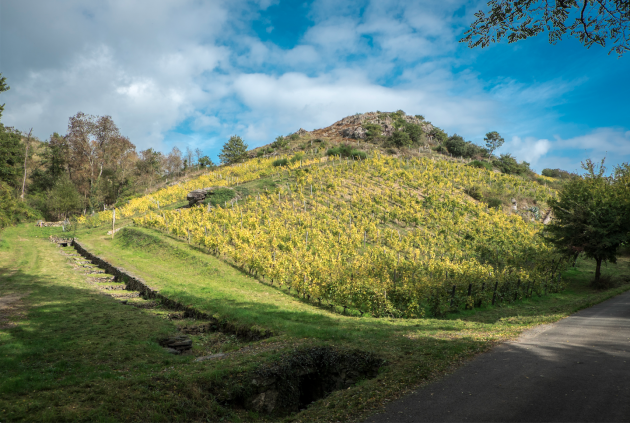
Loire Valley estate Coteau des Treilles changes hands
Coteau des Treilles owner Jo Pithon has after 40 years transmitted his estate to ‘wine enthusiast’ Ivan Massonnat.
In addition to taking over the reigns from Pithon, Massonnat has simultaneously acquired ten hectares in the heart of the Quarts- de-Chaume "Grand Cru" appellation, to create a new estate dedicated to Chenin Blanc, as well as six hectares of vineyards located on the other side of the Layon river.
Inspired by the philosophy of Pithon – a figurehead for Anjou, Massonnat said his goal was to create gastronomy white wines, both dry and sweet, reflecting the expression of the most noble terroirs of Anjou.
“Pithon and I share the same desire to elevate these great terroir wines to the highest level.” he said, adding they were now looking for a “talented winemaker, naturally in love with Chenin Blanc”, to complement the existing team.
“The nine hectares of Pithon-Paillé are at the heart of the project, notably with the Coteau des Treilles being the cornerstone of the new estate, for which a name has yet to be decided,” he said.
Comprising a unique collection of terroirs representing all the main appellations of Anjou (Quarts-de-Chaume Grand Cru, Coteaux du Layon 1er Cru, Savennières, Anjou Blanc, etc), the 25 hectares of the new Estate would benefit from the highest level of attention, both in the vineyards and in the cellar, said Massonnat.
An “ambitious investment plan” was in place and the aim was for the entire estate to be certified biodynamic, he said.
“Having assembled this remarkable collection of terroirs, representing a true mosaic of soils, I wish to express the fullest range of Chenin Blanc expressions. On the Burgundy model, several localised ‘cuvées parcellaires’ will be crafted for the long hold, aiming to express all the diversity of the Anjou soils: schist, sandstone conglomerates, carboniferous and magmatic rocks.”
But while focusing mainly on dry Chenin, Massonnat said he also wants to continue producing sweet wines.
“My project is built for the very long term, and therefore I definitely want to continue this noble tradition of sweet wines, which have been forever recognised among the greatest of France. These magical cuvées have travelled through centuries, and I am convinced they will find new markets tomorrow.”
Eventually, the estate is expected to produce between 60 and 100,000 bottles - overall high-end, ‘haute couture’ wines, but offering a "very broad range".
Since starting out in 1978, Piton has contributed to the recognition of the dry white wines of the Loire Valley, on terroirs previously renowned for sweet wines.




